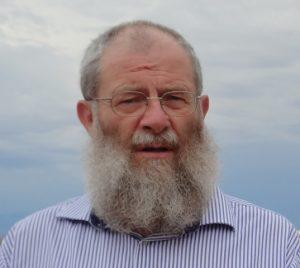Faculty in the News - February 2016
February 10, 2016

On February 22, Prof. Yahya Michot, who is on sabbatical this semester, was in Doha, at the invitation of the Qatar Faculty of Islamic Studies, Hamad Bin Khalifa University, to participate in a Symposium on “Ibn Sina’s Contributions to Human Civilization.” He gave a paper titled “Ibn Sina in the West. From Toledo and Venice to Oxford and New York.” The next day, he flew to Bonn, Germany, to take part in the international conference “Islamic Philosophy from the 12th to the 14th Century” organized by the Annemarie Schimmel Kolleg, Bonn University, between February 24–26. He chaired one of the sessions and delivered a paper titled “Ibn Taymiyya’s Discussion of Avicenna’s Occultism in the ‘Ishârât’.” Prof. Michot is now back in Istanbul (Turkey), where he is based during his leave and pursues his research in manuscripts libraries.
Prof. Feryal Salem was quoted in an article in the Minneapolis Star Tribune on Feb. 27. More Minnesota Colleges Are Hiring Advisers to Work with Muslim Students talks about an increase in the number of Muslim students at Minnesota colleges and universities and a need for more chaplains and advisers to help them.
Prof. Michael Piazza has a new book out! The Vital Vintage Church: How Traditional Congregations Thrive is described this way: “The prevailing witness is that the mainline church’s days are numbered. This testimony is so frequently repeated that only a fool dare challenge it. The contrary view found in Vital Vintage Church, however, comes from someone who actually attends church every Sunday, someone who currently teaches in two mainline denominational seminaries, consults with dozens of mainline churches, and stands in the pulpit almost every Sunday of a mainline church where he is the senior pastor. From that vantage point, Rev. Michael Piazza has seen enough signs of hope to convince him that, if we can change the narrative of doom and gloom, many of our Vintage Churches are poised to experience a time of great renewal.”
Prof. Najib Awad will speak on Feb. 28 at 12:30 p.m. about the Syrian Refugee Crisis at The First Presbyterian Church in New York City. The church is at 12 West 12th Street at Fifth Avenue.
Prof. Scott Thumma was interviewed on Feb. 22 for a televised report on megachurches by KWCH in Wichita, KA. Prof. Thumma, an expert in megachurches, said, “My fascination, in part, is that they’re successful and they’re growing.”
Prof. Shanell T. Smith will serve on a panel at Scripps College in Claremont, CA, titled “Apocalypse: Revelation in Postcolonial Feminist Contexts” on March 2. The event is described as “three distinguished scholars open up the apocalyptic imagery of the Book of Revelation to intersectional analyses of race, class, sex and empire.” Joining Prof. Smith will be Jacqueline Hidalgo of Williams College and Erin Runions of Pomona College.
Prof. Lucinda Mosher will be the guest lecturer for a two-evening workshop on enabling Christian-Muslim understanding at St. John’s Episcopal Church in Tallahassee, FL, on Feb. 18 and Feb. 19.
This article in EthicsDaily.com discusses the findings of the Faith Communicates Today 2015 report. Report: Few U.S. Congregations Thrive, While Most Survive in 2015 summarizes the major findings in the report by the Hartford Institute for Religion Research. “The overriding conclusion of the FACT2010 report: American congregations enter the second decade of the new century a bit less healthy than they were at the turn of the century,” the report noted. “Against this backdrop the last five years captured in the 2015 survey might be characterized as: More of the same, but a little less so and with a few interesting twists.” Another February article in the Association of Religion Data Archives (ARDA) takes a look at the survey from the perspective of Protestant mainline religions and questions whether many of those churches are past the “point of no return” for turning themselves around.
The Hartford Institute for Religion Research gets its own role in the presidential campaign through this story about Republican candidate Sen. Marco Rubio and the megachurch he attends in Florida. “Trading Faiths: How Marco Rubio’s Past Could Unite Christians and Republicans” ran in The Guardian.com on Feb. 5, 2016, and it quotes Prof. Scott Thumma about what makes megachurches so attractive.
Both Prof. Scott Thumma and Dr. David Roozen were quoted in this Huffington Post blog, The ‘1 Percent’ in Mainline Protestantism? Congregations Attracting Young Adults, which talks about the few bright spots for Protestant congregations in the U.S. The article states: “‘There is a place, and will be a place” for mainline Protestant churches in the American religious landscape, said sociologist Scott Thumma of the Hartford Institute of Religion Research. But just how big a place, and just how many of today’s struggling mainline churches will survive in the next half-century will depend on their ability to embrace younger generations. For many churches, it’s no longer “a matter of tweaking a few things,” Thumma said. “It’s a matter of reinventing yourself, almost revitalizing yourself, from ground zero.'”
Join our mailing list
Keep up with all the latest happenings at Hartford International.

